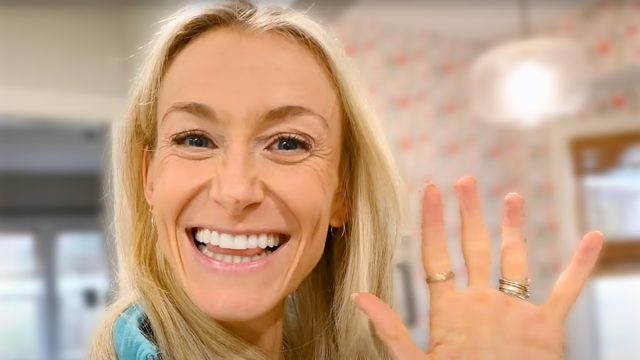7 Ways to Reach Your Natural Weight Through Intuitive Eating
Have you ever felt frustrated with dieting, constantly worrying about your weight? You're not alone. Many of us have been caught in the cycle of restrictive eating and guilt. But there's a better way. Colleen Christensen, an Intuitive Eating dietitian, along with experts from the British Heart Foundation, offers a refreshing perspective on finding your best weight without restrictive diets or food rules. This approach not only helps you achieve a healthy weight but also improves your overall relationship with food and your body.
Reject the Diet Mentality
The first step in finding your best weight is to reject the diet mentality. As the British Heart Foundation underlines, "Stop dieting. It's not working for you, and you are not alone in this."
In her post, Colleen agrees, explaining that dieting often leads to weight gain in the long run. Instead, focus on building a healthy relationship with food rather than adhering to restrictive diets.
Understand Your Body's Unique "Best Weight"
Colleen emphasizes that your best weight isn't about a number on a scale or a BMI chart. "Your best weight is unique to you, and it's not actually a weight that we are striving for, but rather a feeling," she explains. This weight is where you feel best both mentally and physically, functioning optimally without dieting while developing a healthy relationship with food and body.
RELATED: These 5 Breakfasts Helped Me Blast Body Fat in My 40s – Recipes Included!
Recognize Your Hunger and Fullness
The British Heart Foundation advises, "Eat when your body tells you that you're hungry and stop eating when you are full." This practice helps maintain a balanced and healthy diet. Colleen suggests asking yourself, "How does the way that you're fueling your body make you feel?" This mindfulness approach ensures you stop eating when you're comfortably full and helps you tune into your body's natural signals.
Make Peace with Food
Both Colleen and the British Heart Foundation stress the importance of allowing yourself to enjoy all types of food without guilt. "No foods are off limits. Allowing yourself to have the foods banned by restrictive diets removes any guilt you might feel about eating them," the foundation explains. This approach prevents unhealthy bingeing and promotes satisfaction.
RELATED: I'm a Nutritionist and These are 10 Wellness Habits I Wish I'd Started in My 20s
Shift Focus from Weight to Behaviors and Feelings
Instead of obsessing over the scale, Colleen advises focusing on behaviors and how you feel. She suggests asking yourself questions like: "How does the way that you're moving your body feel? How do your overall habits make your body feel?" The British Heart Foundation adds, "Choose something you enjoy, rather than forcing yourself to do something you don't," when it comes to exercise. This positive approach enhances both physical and mental health.
Recognize Signs You're Not at Your Best Weight
Colleen outlines behaviors that might indicate you're below or above your best weight. Restrictive food rules, not honoring hunger, or over-exercising could suggest you're below your best weight. Conversely, excessive reliance on emotional eating, struggling to stop eating when full, or lack of enjoyable movement might indicate you're above it. The British Heart Foundation advises, "Be aware of and challenge internal negative thoughts that lead to feelings of failure or guilt."
RELATED: 5 Ways Seed Oils Are Silently Damaging Your Health, Expert Warns
Embrace a Weight-Neutral Mindset and Honor Your Health
"Your best weight is not found by focusing on weight at all," Colleen states. She advocates for adopting a weight-neutral mindset, shifting focus from the scale to behaviors and feelings. The British Heart Foundation supports this, saying, "Accepting and respecting your body at every size will help you to feel better and make logical choices about food and exercise." They also remind us, "One meal or one day where you don't eat particularly healthily won't make a difference in the long term." It's about maintaining a balanced diet over time for overall well-being.
Colleen shares real examples of people who have found their best weight through intuitive eating, experiencing weight loss, gain, or maintenance. Regardless of the outcome, all reported feeling more at peace with their bodies and eating habits. And if you enjoyed this article, don't miss I'm a Nutritionist and Here Are 25 Weight Loss Truths You Need to Hear.





